Effective data modeling is essential for organizations aiming to make informed, strategic decisions in today’s data-centric world. Data modeling serves as the blueprint for storing, structuring, and accessing data, ensuring that enterprises can derive meaningful insights from their vast data assets. However, with increasing data volumes and evolving regulatory requirements, organizations face significant challenges in managing, securing, and scaling their data models.
SqlDBM, a leading cloud-based data modeling platform, offers a comprehensive solution to address these challenges. Its features are tailored to meet the complex needs of enterprises by ensuring data security, compliance, and flexibility — all while streamlining data modeling processes. For organizations with sophisticated data architectures, SqlDBM offers a solution beyond basic modeling to deliver the reliability and control needed in today’s dynamic business landscape.
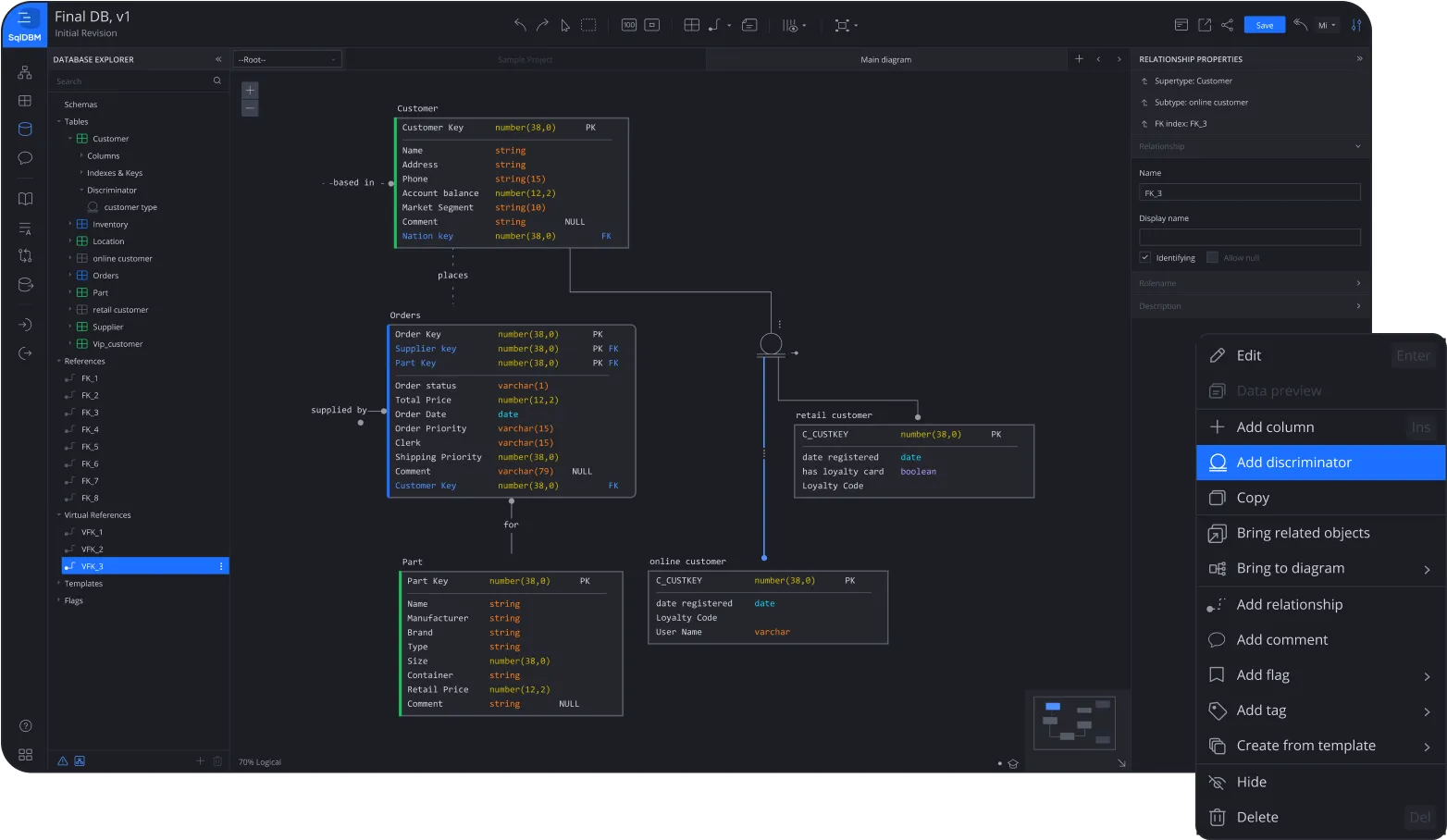
Data Modeling: The Cornerstone of Enterprise Success
As organizations collect and generate more data, efficiently modeling and managing this information becomes increasingly important. Data modeling is more than just a technical exercise—it is the foundation for successful data-driven decision-making. Organizations can improve reporting accuracy, streamline workflows, and enable more effective data analysis and AI readiness by creating well-structured models.
For large enterprises, data modeling is critical in ensuring that data is accessible and actionable. However, as data environments grow more complex, with multiple databases and cloud services in play, the tools used to model and manage this data must evolve to keep up. SqlDBM is designed to meet these demands, offering the scalability, security, and flexibility that organizations need to stay competitive.
By adopting a platform like SqlDBM, organizations can ensure that their data models are not only well-structured but also secure, compliant, and capable of handling future growth.
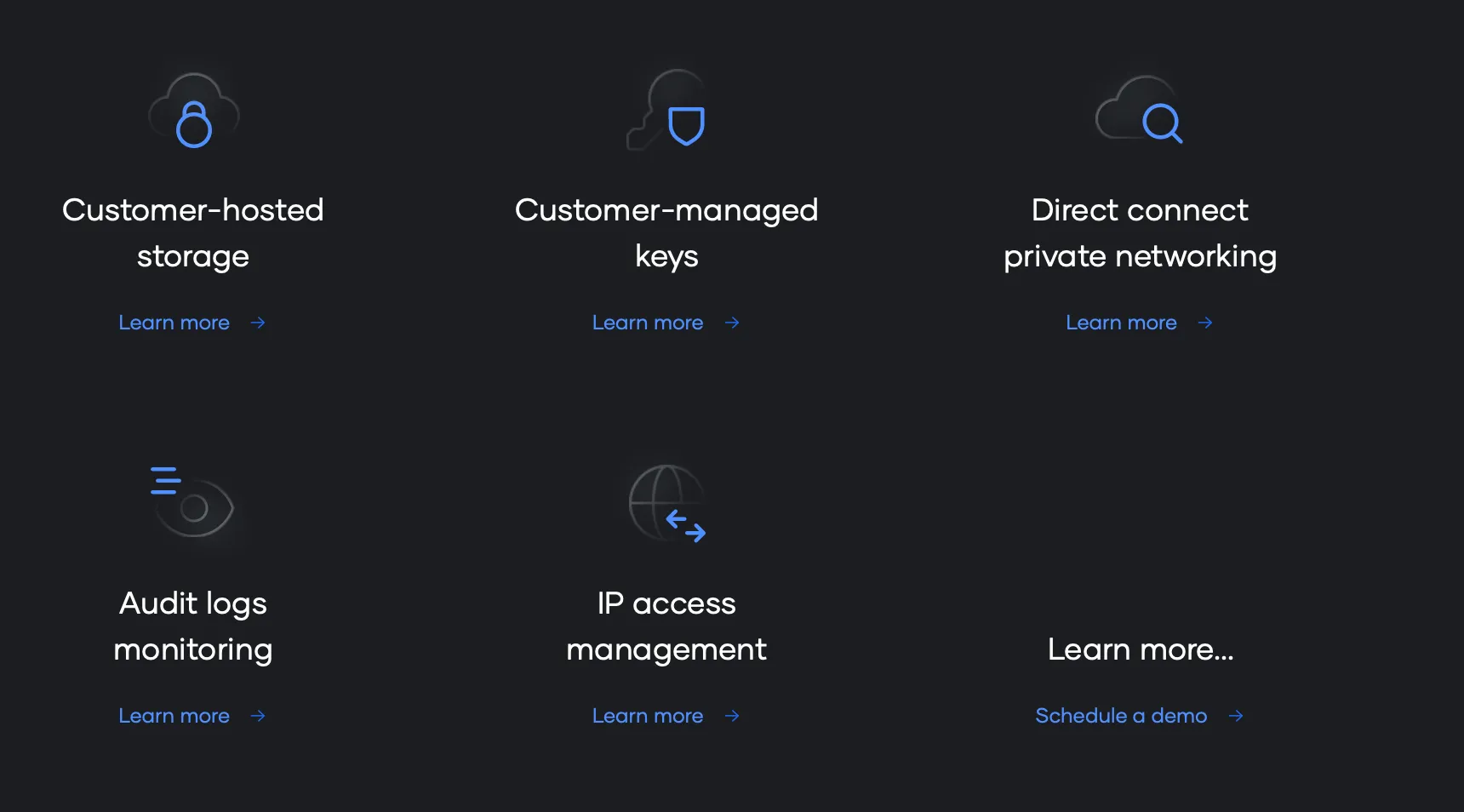
Customer-Hosted Storage: Flexibility and Compliance
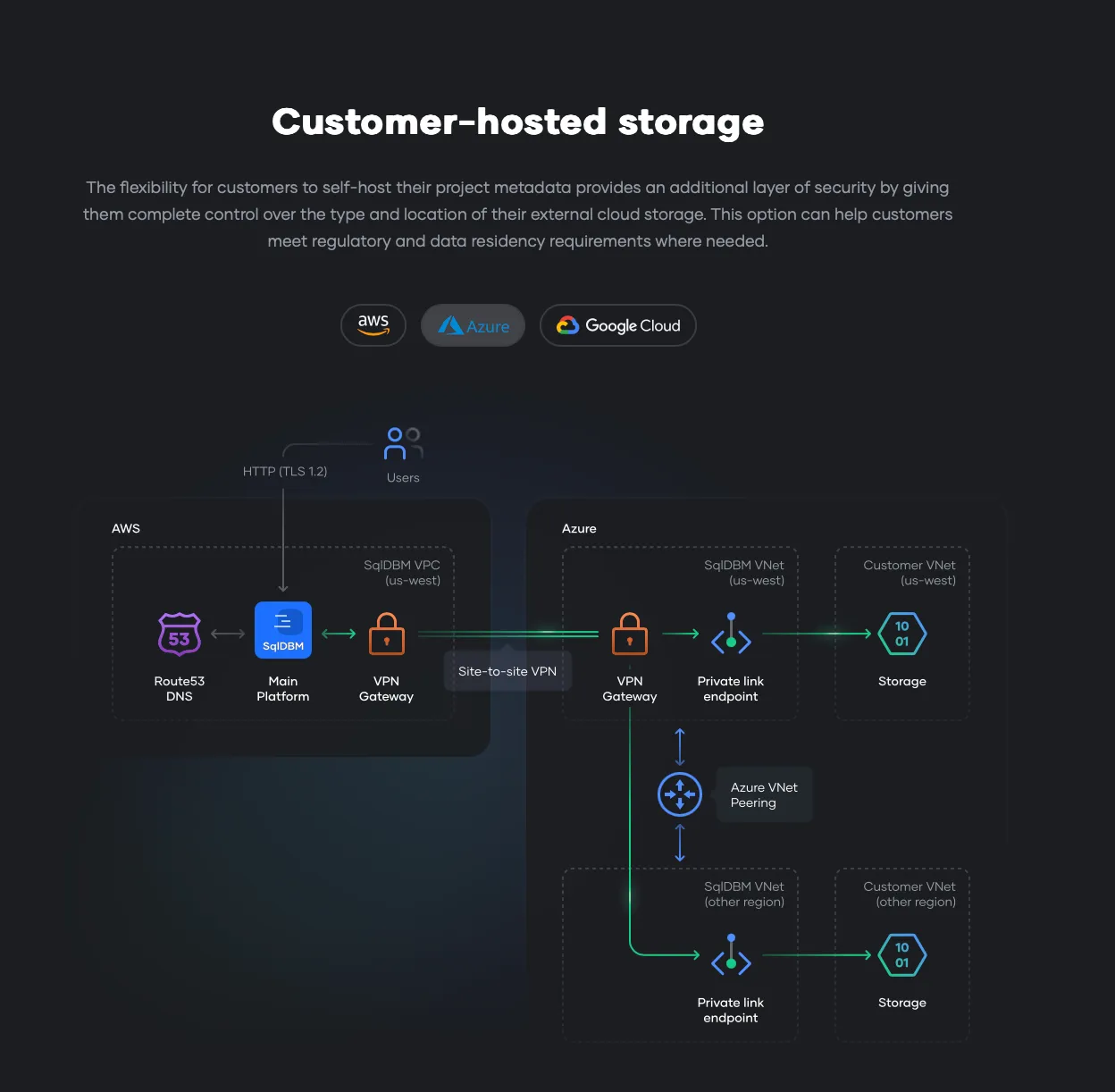
Data governance and compliance are top priorities for modern enterprises, particularly those operating in industries such as finance, healthcare, or government. Regulations like GDPR, HIPAA, and other data residency laws require organizations to take control of where and how their data is stored. SqlDBM offers a unique advantage with its customer-hosted storage option, allowing organizations to host their project metadata on their own cloud infrastructure, such as AWS, Azure, or Google Cloud.
This feature gives organizations greater control over their data, enabling them to meet strict data residency requirements and comply with local laws. The flexibility to choose where data is stored ensures that businesses can tailor their storage environments to meet their specific regulatory and security needs, while still benefiting from the powerful data modeling capabilities of SqlDBM.
The ability to customize and control storage solutions offers a significant advantage for data architects and their InfoSec teams. It provides peace of mind knowing that the organization’s data is stored securely and in compliance with relevant regulations while still ensuring that it is easily accessible for modeling and analysis.
Customer-Managed Encryption Keys: Enhanced Data Security
Security is a key concern for any organization handling sensitive data; encryption is a fundamental part of that security strategy. With customer-managed encryption keys, SqlDBM enables organizations to control their encryption processes fully. Rather than relying on third-party key management services, enterprises can generate, manage, and rotate their own encryption keys, providing an additional layer of security.
This is particularly valuable for organizations dealing with highly sensitive or regulated data, such as personal health information or financial records. The ability to revoke or rotate encryption keys ensures that businesses can protect their data from unauthorized access and respond quickly to potential security threats.
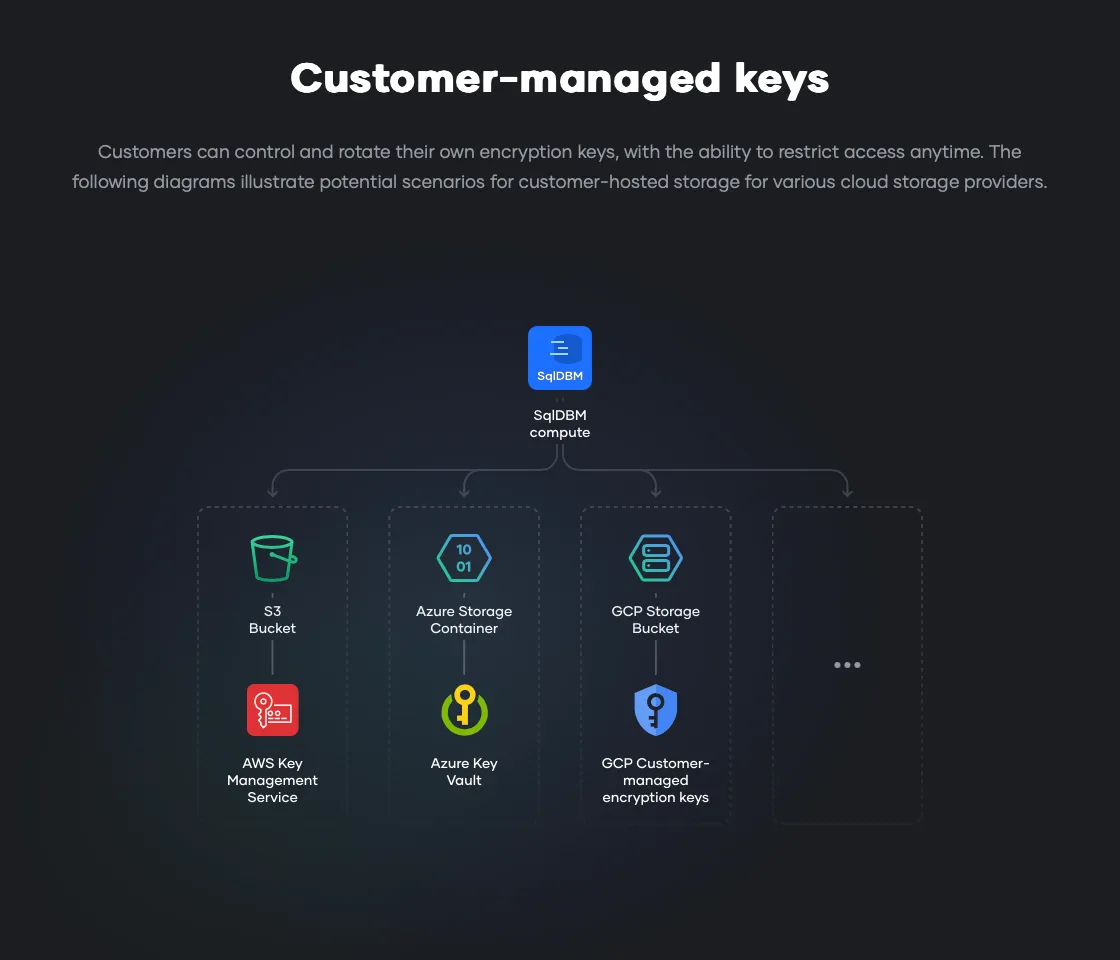
This feature allows for more secure data model designs for data architects and their security teams. Knowing that encryption is handled internally offers an added assurance that sensitive data remains protected and that the organization’s security policies are always adhered to.
Private Networking: Securing Data Flow and Performance
In addition to securing data at rest, many enterprises are also concerned with how data moves between systems. Private networking, a feature offered by SqlDBM, ensures that data flows securely within an organization’s private infrastructure, minimizing exposure to external threats. This feature enables direct, secure connections between on-premise systems and cloud environments, bypassing the public internet and reducing the risk of cyberattacks.
Private networking provides security and performance benefits for organizations that handle large datasets or require real-time data processing. By ensuring data is transferred over a private, dedicated network, businesses can improve the speed and reliability of data flow while protecting sensitive information from unauthorized access.
For data architects, private networking offers the peace of mind that data will be securely and efficiently transferred across environments. This is especially important in large-scale operations where data models must interact with various systems and services across different locations.

Audit Logs: Maintaining Transparency and Compliance
Maintaining accountability and transparency is essential for security and compliance in highly regulated industries. SqlDBM supports this need with its robust audit log feature, which tracks all interactions with data models, including user access and changes made to the data. These logs offer organizations a clear, detailed view of how data is being used, providing a vital tool for demonstrating compliance with industry regulations.
Having comprehensive audit logs in place is invaluable for enterprises subject to audits or compliance reviews. These records ensure accountability and provide a safeguard in the event of a security incident, helping organizations quickly identify and address potential issues.
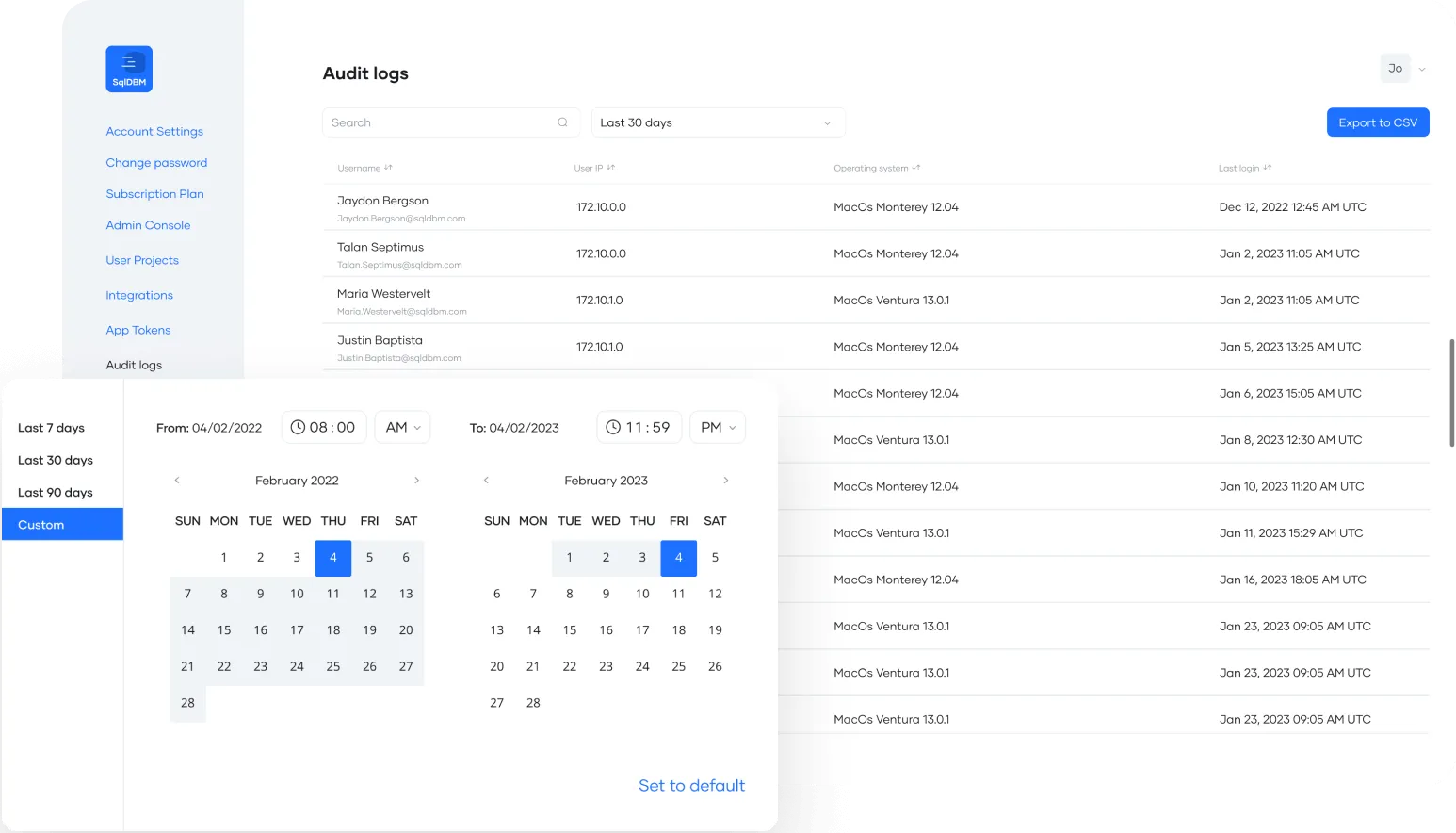
Audit logs are a key component of a secure and compliant data architecture for data architects and management teams, by maintaining clear records of who accessed what data and when, architects can ensure that their models are not only secure but also used in compliance with internal policies and external regulations.
IP Access Management: Controlling Access to Sensitive Data
Access control is critical to data security, particularly for enterprises with distributed teams or remote workers. SqlDBM’s IP access management feature allows organizations to restrict access to data models based on specific IP addresses, ensuring that only authorized users from trusted locations can interact with sensitive data.
This added control layer helps prevent unauthorized access, even if login credentials are compromised. For organizations that regularly work with external contractors or remote employees, IP access management offers a simple yet effective way to secure data models against potential breaches.
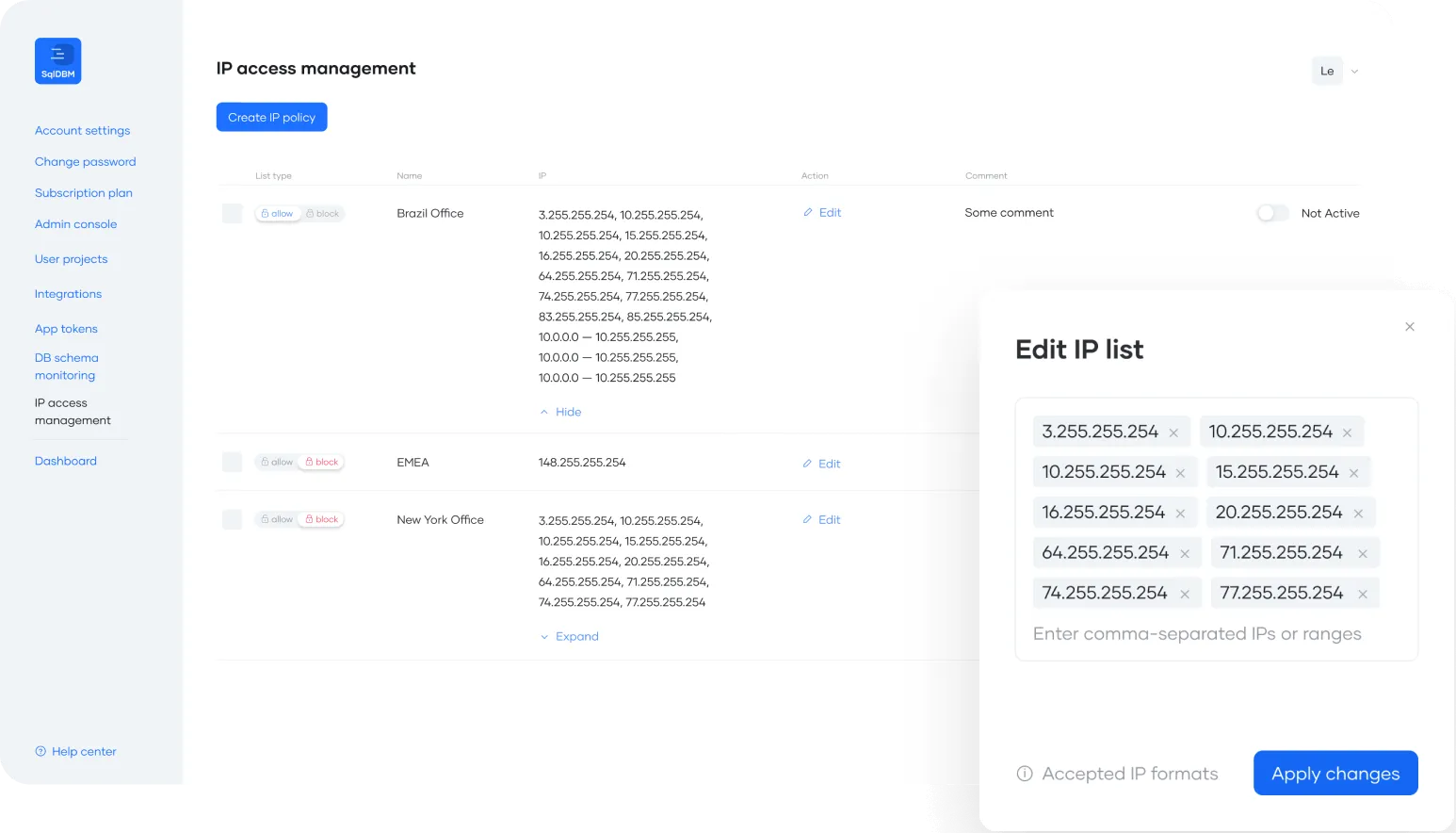
Data practitioners benefit from this feature by having greater control over who can access and modify their data models. It provides an additional safeguard that complements existing security measures, ensuring that sensitive data is only accessible by authorized personnel.
Data Residency: Meeting Global Compliance Requirements
As businesses expand their global operations, they face a growing need to comply with regional data residency laws. These laws often require that certain types of data be stored within specific geographic regions, adding complexity to data management. SqlDBM addresses this challenge by offering flexible data residency options, allowing organizations to choose where their data is stored based on their regulatory needs.
This feature is especially valuable for multinational organizations, which must navigate a complex web of data privacy laws across different countries. Organizations can remain compliant with local regulations by choosing where to store data while maintaining control over their data models.
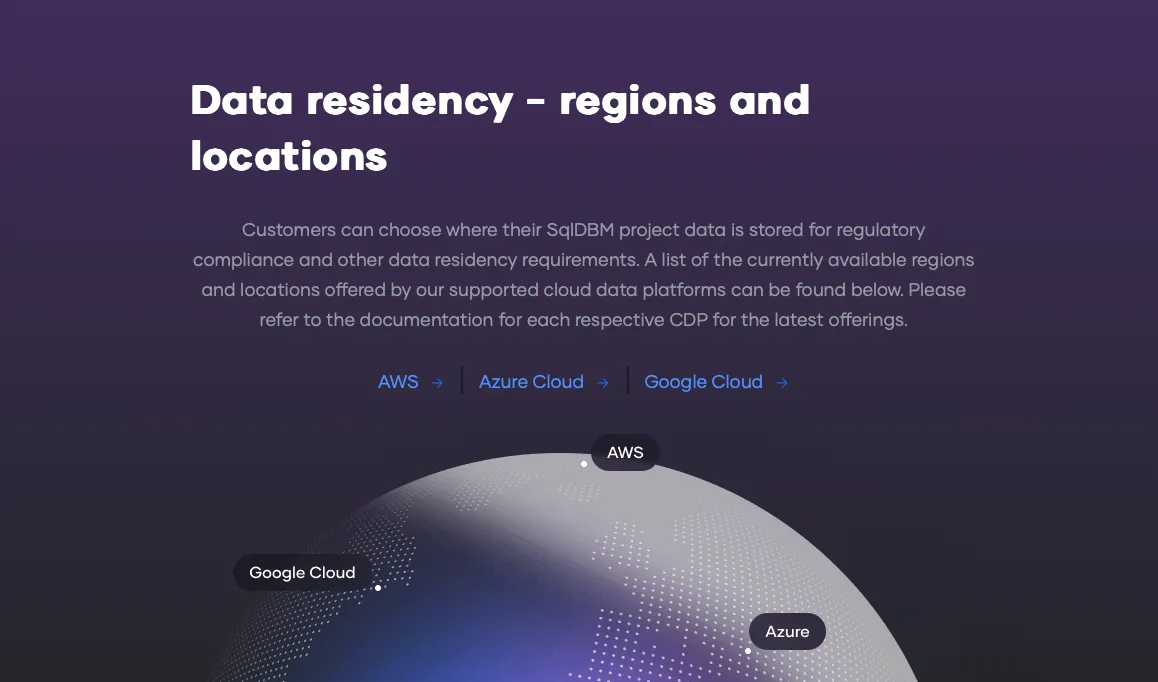
This flexibility is essential for data architects. It enables them to design models that not only meet the organization’s technical needs but also comply with global legal requirements. SqlDBM provides the tools to manage data across borders, reducing non-compliance risks.
SqlDBM as a Strategic Solution for Modern Data Architects
As organizations increasingly rely on data to drive business outcomes, the tools they use to model, manage, and secure that data are more critical than ever. SqlDBM offers a comprehensive solution for enterprises that must ensure their data models are secure, compliant, and scalable. With features such as customer-hosted storage, customer-managed encryption keys, private networking, audit logs, IP access management, and data residency options, SqlDBM empowers organizations to take full control of their data.
For modern enterprise organizations, SqlDBM provides the flexibility, security, and performance necessary to build modern, scalable data architectures that can adapt to the evolving needs of the enterprise. By adopting SqlDBM, organizations can optimize their data modeling practices, ensuring that their data remains valuable in an increasingly complex and regulated world.




